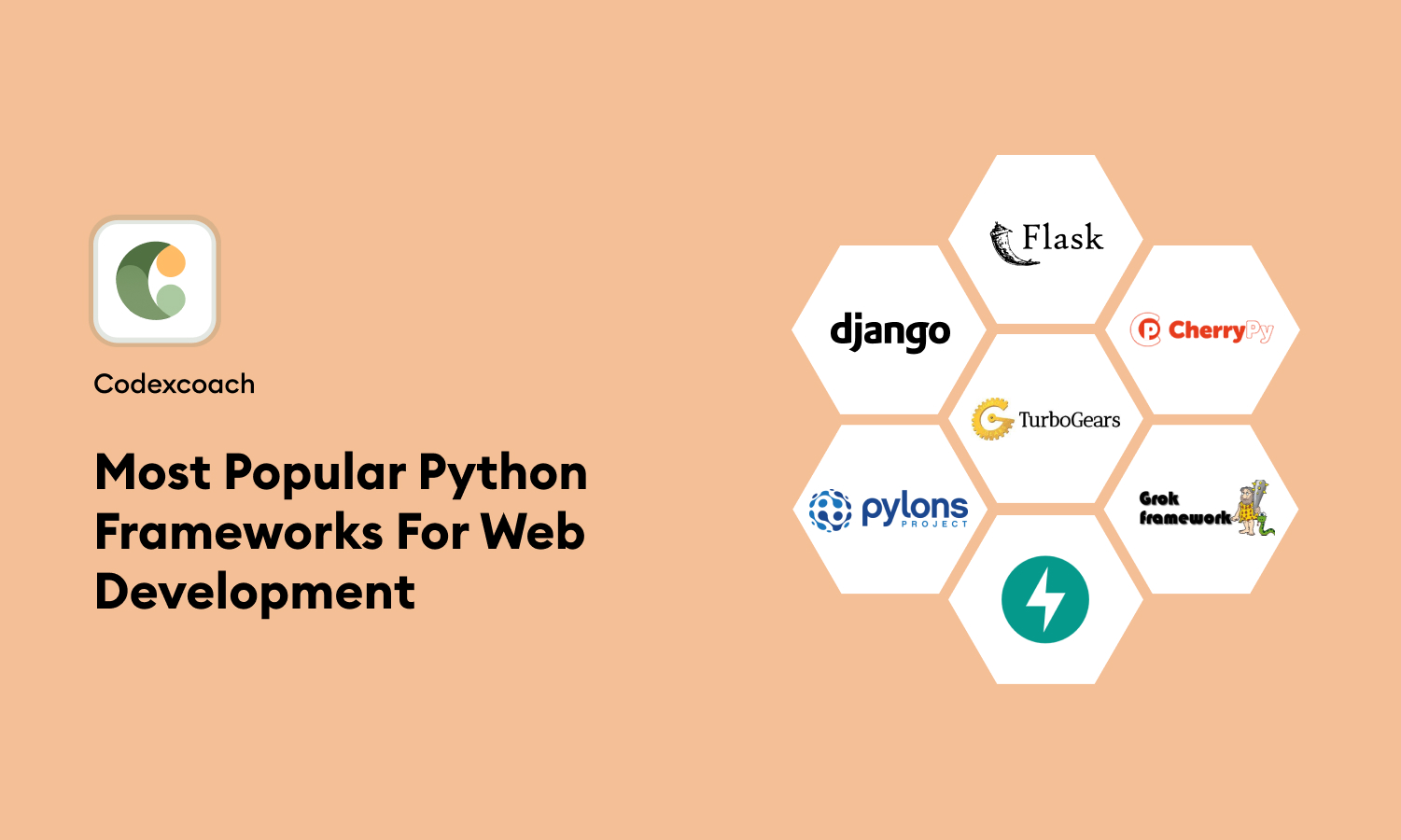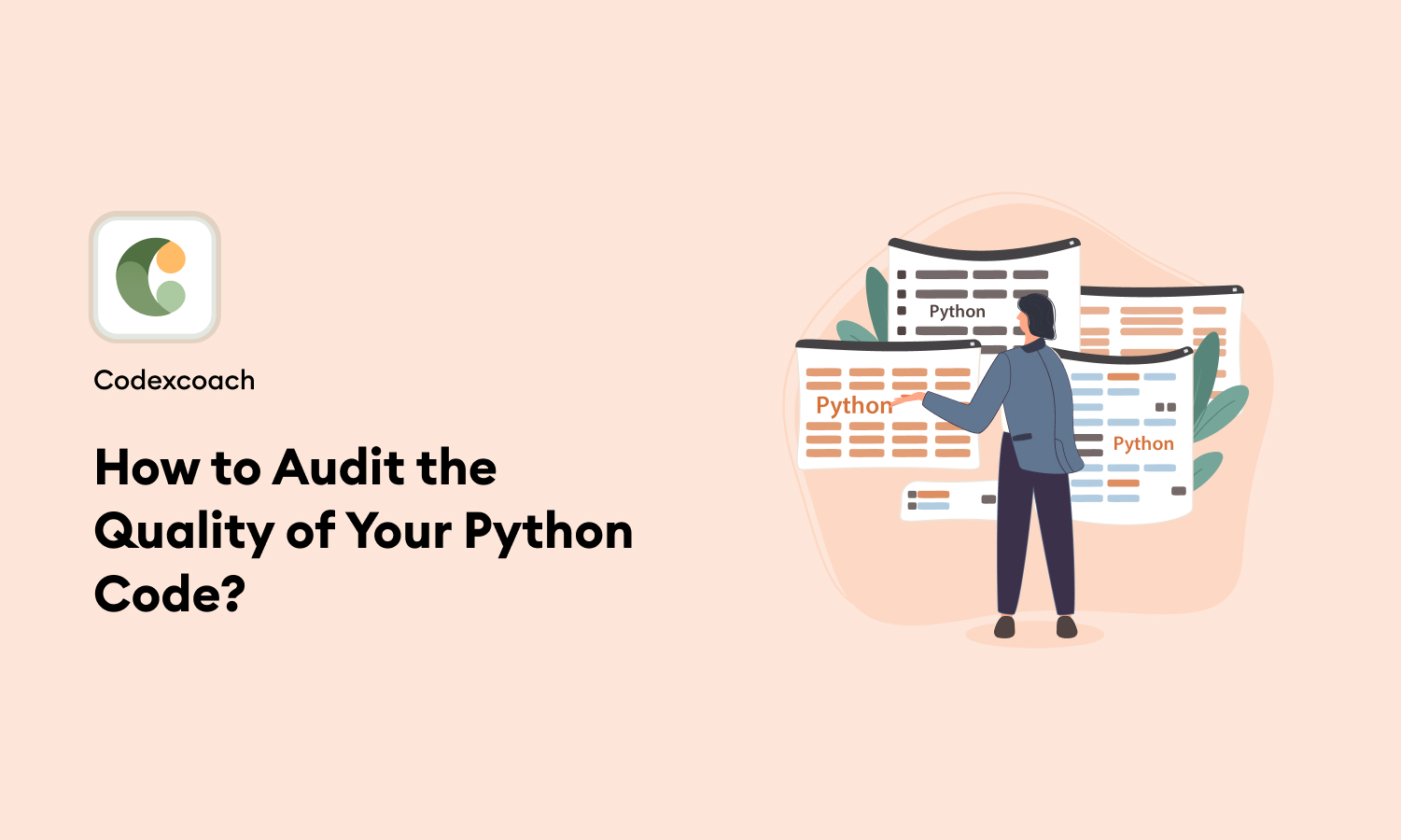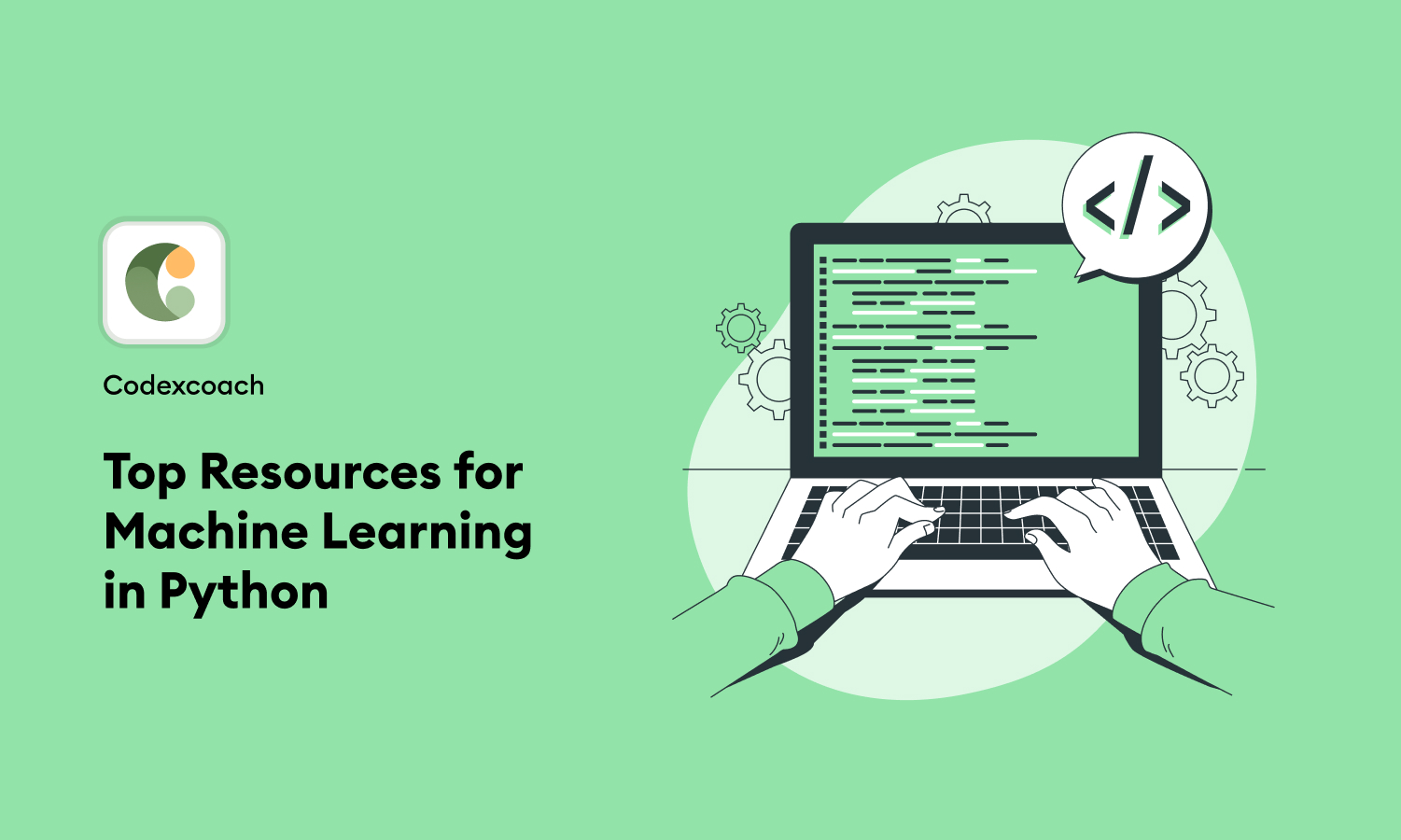Python is a popular programming language that is loved by developers all over the world for its speed, reliability and functionality. It is widely used by big companies to build websites. Python helps developers save time by providing ready-made components that they can use in their projects.
Although Python doesn’t have built-in tools specifically for quickly building custom web apps, it has a large collection of libraries that fill this gap. Python is also good for building mobile apps. In this blog, we’ll look at the top 10 Python frameworks that are important to anyone looking to develop web applications, providing useful tips for businesses to consider.
What Is Python?
Python is a flexible programming language that is easy to use because of its simple way of writing code and helpful tools, making it a favorite for creating websites, computer programs, mobile applications and games. Python is also popular for new technologies like machine learning, AI, data analysis and automating tasks.
What Is a Framework?
A framework is a set of tools that help developers build applications quickly by providing ready-to-use code. This saves developers from manually writing a lot of basic code, speeding up the application creation process.
Frameworks and libraries are similar in that they both offer pre-written code that developers can use. However, they differ in how much control the developer has over how the application works. With libraries, developers can decide how to put the application together. A framework, on the other hand, has a set way of building apps, which developers follow to make their apps work properly.
1. Django
Django is a powerful, free tool that helps developers quickly build complex websites and applications. It is one of the top tools for building web applications and APIs, with over 12,000 projects built using it. Django is loved for its wide selection of tools, its simplicity, and how it lets you reuse parts of code.
Key Features of Django:
- Helps set up web address patterns for your app.
- Includes a ready-to-use system for user login and management.
- Provides a simple yet effective way to handle web addresses.
- Uses an object-oriented approach to managing data, which makes it easier to store and find data.
- Comes with a built-in tool to manage customizable and easy-to-use website content.
- Provides various options to help your application run faster by temporarily storing data.
2. CherryPy
CherryPy is a fast, reliable, and straightforward tool for building websites with Python. It works on all operating systems that can run Python.
CherryPy lets developers build web apps the way they write regular Python programs, saving time and reducing the amount of code required. It supports all the basic features you would expect from a web tool, such as managing user sessions, managing file uploads, dealing with cookies, and more. It allows you to choose any technology you like to access data and create web page templates.
Example:
import cherrypy
class HelloWorld(object):
@cherrypy.expose
def index(self):
return "Hello World!"
cherrypy.quickstart(HelloWorld())3. Turbogears
TurboGears is a tool for building web applications using Python. It is designed for large, complex tasks and is built by combining parts of other tools like TurboGears 1, Rails, and Django.
Example:
from wsgiref.simple_server import make_server
from tg import MinimalApplicationConfigurator
from tg import expose, TGController
# RootController of our web app, in charge of serving content for /
class RootController(TGController):
@expose(content_type="text/plain")
def index(self):
return 'Hello World'
# Configure a new minimal application with our root controller.
config = MinimalApplicationConfigurator()
config.update_blueprint({
'root_controller': RootController()
})
# Serve the newly configured web application.
print("Serving on port 8080...")
httpd = make_server('', 8080, config.make_wsgi_app())
httpd.serve_forever()Features:
- Built for big tasks: It’s built to handle the toughest jobs businesses can face.
- Helps with multiple databases: It can manage more than one database at a time, which is great for large projects.
- Supports MongoDB: You can use MongoDB as the main storage area.
- Flexible Design: You can choose from different design templates.
Advantages:
- Simple Coding: Uses special markers in coding to keep things organized.
- handles many databases: It can work with different types of databases.
- Support Tools: Comes with tools that make building your site easier.
- Enhances the Website: Integrates with MochiKit for better website interactions.
- Systematic Structure: Follows a clear plan to build an application and uses templates for consistency.
- Improves Teamwork: Helps team members work together on design and setup.
Limitations:
- Hard to customize: It can be difficult to make changes to extend its features.
4. Flask
Flask is a lightweight framework for building web applications in Python. It is known to be adaptable and does not force you to follow a strict way of organizing things.
Features:
- Flexible: It is simple in its core but can be extended as needed.
- Customizable: You can tweak it to suit your specific project needs.
Advantages:
- Built-in Tools: Comes with its server and tools to detect and fix errors.
- Handles web requests well: Good at handling web page requests in a modern way.
- Supports Testing: There are tools to check if your code works correctly or not.
- Advanced Designing: Uses Jinja2 for advanced design features.
- Standards Compliant: Matches web standards for building applications.
- Community Help: There are many add-ons created by other users that you can use.
Limitations:
- Expert handling required: Best for developers who really understand how to use it and can handle its intricacies.
5. Web2Py
Web2Py is a free, open-source tool for building web applications using Python. It helps developers build structured and secure websites by encouraging good coding habits, such as using a setup called Model View Controller (MVC). This setup makes managing complex code easier. Web2Py automatically takes care of common security risks, making your web applications more secure. It includes a feature called Database Abstraction Layer (DAL) that helps manage database operations without the need to write complex SQL code.
Advantages of Web2Py:
- Quick Setup: The web application makes setup quick and straightforward.
- Organized code: MVC architecture keeps your code organized and easy to manage.
- Works with many databases: You can use popular databases whether they are relational or NoSQL.
- Web-based Tools: Comes with an online toolkit to help with tasks like editing files or running tests, which speeds up development.
- All-in-one: Has many built-in features, so you don’t need many additional tools.
- Safe and Secure: Focuses on fixing security issues to keep your web application safe.
Disadvantages of Web2Py:
- Limited Plugins: Its system for adding new features is not very flexible.
- System Management: Managing how data is organized and used can be difficult.
- No Python 3 support: Does not work with Python 3, which is a newer version of Python.
6. Bottle
Bottle is another tool for building web apps with Python, but it’s much simpler and lighter than Web2Py. It works with both old and new versions of Python and requires no additional software to run. This makes bottles great for small projects or parts of larger projects.
Example:
from bottle import route, run
@route('/hello')
def hello():
return "Hello World!"
run(host='localhost', port=8080, debug=True)Bottle Features:
- Easy Templates: Comes with its own way of managing web page templates and supports other popular template tools.
- Access to web details: Web pages easily handle forms, files, cookies, and other web interactions.
- Simple Server: This has a built-in basic server to test your apps and can work with other web servers as well.
7. Grok
Grok is designed to help programmers build web apps quickly and efficiently. It uses parts of the Zope toolkit to make things easier and faster by following two key ideas: set things up automatically where possible and don’t repeat the same code over and over.
Key Benefits of Grok:
- It’s great for building complex websites because it provides a solid foundation.
- Takes advantage of Zope 3’s powerful features, including a sophisticated database system for storing objects.
- Keeps your app secure and controls who can access what.
- Grok’s design reduces confusion and helps programmers create custom web applications tailored to business needs.
Challenges with Grok:
- Sometimes Grok hides code in a way that makes it hard to see everything clearly, which can make it hard to understand and maintain.
- For specific, unique parts of a website, using Grok can be more complicated than necessary.
8. Tornado
Tornado is known to handle many activities at the same time without slowing down, which is perfect for web applications that need to manage many users at the same time.
Example:
import asyncio
import tornado
class MainHandler(tornado.web.RequestHandler):
def get(self):
self.write("Hello, world")
def make_app():
return tornado.web.Application([
(r"/", MainHandler),
])
async def main():
app = make_app()
app.listen(8888)
await asyncio.Event().wait()
if __name__ == "__main__":
asyncio.run(main())Main Advantages of Tornado:
- It allows adding a secure login and user verification system.
- Capable of handling real-time data without delay, the application is run smoothly.
- Supports different languages and locales making your application globally user friendly.
- Helps manage user data and design web pages.
Challenges with Tornadoes:
Like Grok, using Tornado for very unique features can be more complicated than necessary. Simple coding can sometimes be more effective.
9. BlueBream
BlueBream, once known as Zope 3, is a tool for building web applications, which is great for large projects that require the reuse of parts. It builds on the Zope Toolkit (ZTK), which provides a solid foundation for building reliable applications.
Bluebream Benefits:
- Works well with Python’s WSGI, which is important for modern web development.
- There are tools to test the app to make sure it works well.
- Offers strong security features.
- Uses the simple XHTML Compliant language to create web pages.
- Comes with a tool that automatically creates forms, which helps in designing user interfaces.
- Implements a design approach that keeps different parts of an application separate, making it easier to reuse components.
Bluebream Challenges:
- It is complex and difficult for beginners or those new to Python’s Zope framework.
- Many of its features may be too much for small, simple projects.
- It is not as popular as other alternatives like Django or Flask, so there is less support in the community.
- It can be slow for large and complex projects due to the overhead of the Zop framework.
- Although it is meant to handle lots of users and traffic, it may not be the best for very large projects.
10. Pyramid:
Used by big names like Mozilla and Dropbox, Pyramid is a Python web framework known for being adaptable and simple, suitable for everything from small tasks to large systems.
Example:
from wsgiref.simple_server import make_server
from pyramid.config import Configurator
from pyramid.response import Response
def hello_world(request):
return Response('Hello World!')
if __name__ == '__main__':
with Configurator() as config:
config.add_route('hello', '/')
config.add_view(hello_world, route_name='hello')
app = config.make_wsgi_app()
server = make_server('0.0.0.0', 6543, app)
server.serve_forever()Pyramid Benefits:
- Good for both small and large applications.
- Has flexible tools for creating and inspecting web page structures.
- Templates provide many options for designing and handling web content.
- Supports thorough testing and detailed documentation, which helps during development.
- Allows different ways to manage users and what they can access.
Pyramid Challenges:
- Setting it up can be complex and time-consuming, requiring a good understanding of its components.
- It is geared towards people with a lot of Python experience.
- While it works well with tools for managing databases like SQLAlchemy, it may be unnecessary for smaller projects.





